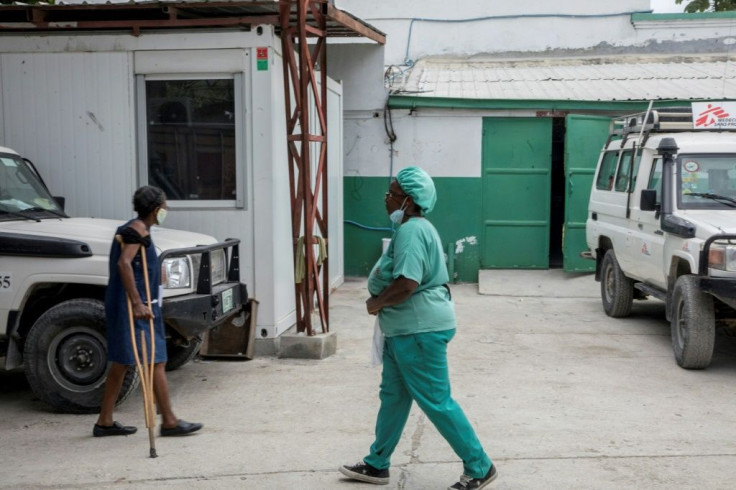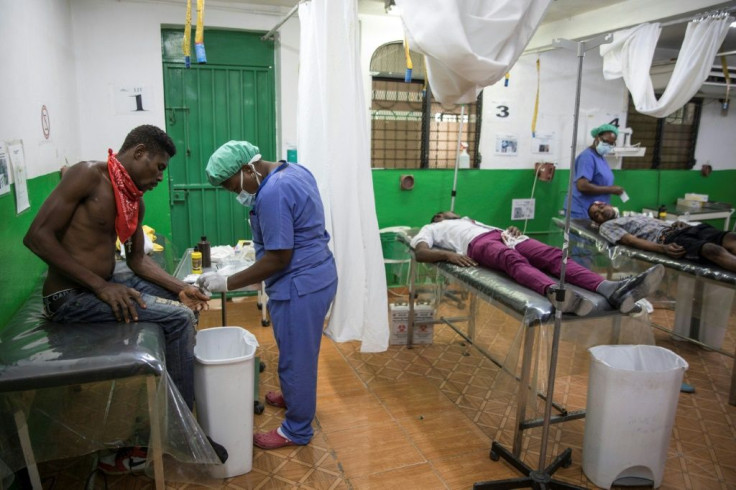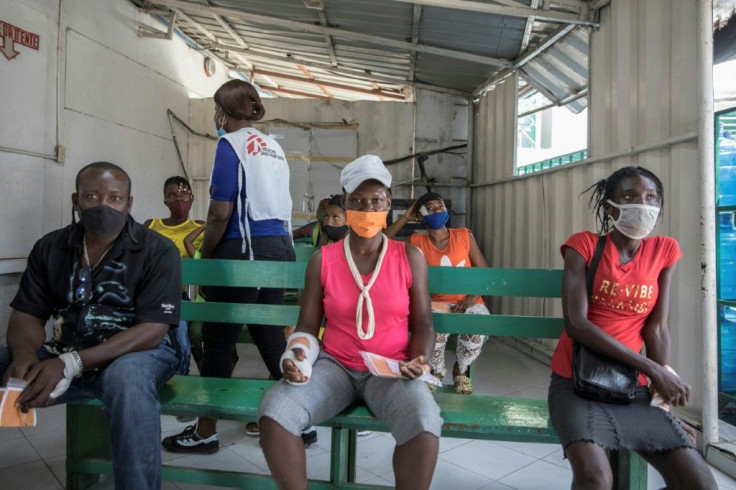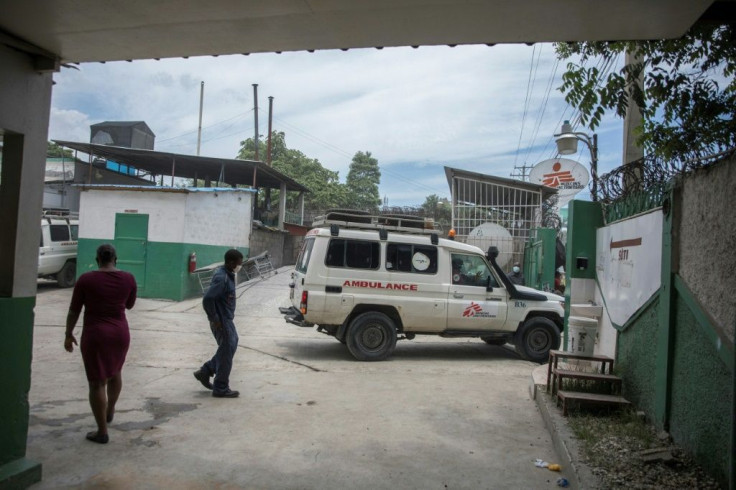In Gang-ridden Haiti, Doctors Without Borders Hospital Vital For Poor
The cloud of dust in the air in front of the Doctors Without Borders hospital in Haiti's capital is actually a good thing -- it shows that the gangs who normally rule over the area are not present, and so traffic is circulating.
"It's a tough area," summarizes Frandy Samson, the head of medical operations for the emergency clinic run by the Nobel peace prize-winning charity since 2006 in Port-au-Prince's Martissant neighborhood.
Once a leafy district, the hills in Martissant that descend to the Bay of Port-au-Prince have been overtaken with shoddy, chaotic homes built every which way.

Long ignored by local officials, the urban jungle is now effectively under siege by armed gangs, which are in near-constant battle for control of the densely populated area.
"Of course, there are clashes between gangs, but our security depends on the quality of care that we provide, and the way we work together with the community," says Samson, who is an orthopedist by training.
"Even if there is gunfire, you'll see that in the emergency room, the work goes on."

The constant flow of patients at the entrance gate proves the hospital -- the only one in the capital to take emergency cases free of charge -- is popular with locals.
"We see car accident victims, and also serious traumas -- gunshot wounds, knife wounds," Samson says.

The back of his shirt soaked in blood, James Chery complains about having had to wait for his head injury -- the result of a fight with his female partner -- to be stitched up, but he nevertheless thanks the hospital staff for their help.
"At other places, this would cost a lot of money," says Chery, who is in his 30s, giving the thumbs-up to the clinic.
The disparity in access to health care highlights the stark inequalities that are rife in Haitian society.
While a moneyed few head to Florida for weekends to get the coronavirus vaccine and relax, most of Haiti's population lives under the poverty line, and many of those do not have enough to eat.

Given that the government devotes less than five percent of its budget to health care, non-governmental organizations like Doctors Without Borders -- widely known by its French initials, MSF -- have tried to bridge the wide gaps, taking over entire parts of the health care infrastructure.
For three decades, MSF has answered the call, caring for Haitians suffering through everything from earthquakes and cholera outbreaks to rape and serious burns.
"It's an emergency that is lasting, and that is getting worse. For 30 years, people have become poorer and poorer, and access to health care is more and more expensive," says Walter Lorenzi, head of MSF Belgium's mission in Haiti.
The criminal gangs have tolerated MSF's presence in Martissant, but the group still has to deal with increasing security risks in the Haitian capital.
An MSF employee was fatally shot recently as he headed home.
"It was an extremely sad incident of urban violence, but he was not targeted because of his connection to MSF," Lorenzi said.
With only 11 beds, the Martissant clinic every day must face the challenge of referring patients who need surgery to other facilities.
"Either there is no space or we have worries about access -- if there are shots fired, no one can get through," says Samson.
Nevertheless, in recent times of political crisis in the city, MSF's ambulances have always been able to get past the barricades.
After 30 years in Haiti, Lorenzi says there is no question for now of MSF leaving any time soon, saying such a move would indicate a far worse deterioration in security conditions.
Haiti "is an emergency that is lasting, but it's still an emergency," Lorenzi said. "We're not going to leave just like that."
© Copyright AFP {{Year}}. All rights reserved.





















